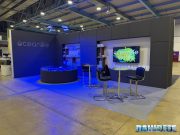For my next trip to Egypt I’ll find myself in a position to choose which lens bring with me to fully complement the two other lenses that I have just decided to bring and are untouchable, the Tokina 12-24 f4 for landscapes and the Nikon 70-200 f2, 8 VR to make shots to my daughters and photos at night.
So I also got the ball to finally decide which of the two middle zoom in my possession was in fact the best. After all, I was interested to cover between 24 from Tokina and 70 from Nikon. The main choice fell initially on the 28-105, but then reflecting about, and considering that the difference between the two is only 100 grams, I thought I could also look at the 18-200 which would have also the VR, the Nikon’s optical stabilizer, not essential but certainly useful. Basically, any lens I’ll bring with me, I’ll use it in the range of focal lengths between 24 and 70 approximately.

AF-S Nikkor 18-200 1:3,5-5,6 G ED vs AF Nikkor 28-105 1:3.5-4,5 D (click here to enlarge)
The Nikon Nikkor 28-105 AF-D f3,5-4,5 was a good medium zoom a few years ago, with excellent macro capability, and it’s still possible to find it, used, at very low prices, while the Nikon Nikkor AF-S DX VR 18-200 f3.5-5, 6 ED IF is the classic all-rounder for the DX sensor, which, compared to 28-105 begins from 18 and comes to 200 and is stabilized.
So it all begins from my need and that I wanted to extend to you all.
To taking pictures I used my tripod Benro Travel Angel A-268 M8 (click to read more about this tripod), my NikonD300 set with mirror up and remote release to avoid any vibration, and the focus was done manually using Live View at maximum magnification. Technically the best I could do.
 AF-S Nikkor 18-200 1:3,5-5,6 G ED versus AF Nikkor 28-105 1:3.5-4,5 D at maximum lenght (click here to enlarge)
AF-S Nikkor 18-200 1:3,5-5,6 G ED versus AF Nikkor 28-105 1:3.5-4,5 D at maximum lenght (click here to enlarge)
The system tripod – D300 was leveled horizontally and vertically to avoid unwanted perspective distortions .
The file obviously was not treated in any way, I shooted RAW with picture control set to standard with all values to 0, including sharpness, I then opened the file with NX and I switched to Photoshop where I did the 100% enlargement without applying anything, so the final file can have a qualitatively very different result if normally developed.
I photographed my library … uhm DVD library:) and while understanding that the test has no scientific value, I think it’s more than enough to get an idea of which of the two objectives is better. At least to me I have had many doubts clarified as we shall see in the conclusions.
Specifications
| Nikon AF-S 18-200 VR | Nikon AF 28-105 D | |
| Focal Lenght | 18-200 mm (11,1x) | 28-105 mm (3,75x) |
| Lens formula | 16/12; 2 ED and 3 Asph |
16/12 1 Asph |
| Macro | 1:4,5 at 200mm | 1:2 at 105mm |
| Max Aperture | f3,5-5,6 | f3,5-4,5 |
| Stabilization | VR II, 4 stops claimed |
none |
| Autofocus | AF-S motor |
Camera Screw Drive Motor |
| Closest Focus | 50 cm |
50 cm, 22 cm in macro mode |
| Dimensions | 77×96,5 mm |
73×81,5 mm |
| Wheigt | 560 g |
455 g |
| Wheater sealing | none but a plastic o-ring | none |
| Price | 650-700 Euro Nikon |
200 euro used |
| Announced | late 2005 | 1998 |
Let us now comparisons:
18 mm
Nikon 18-200 f3,5 center (mimimum aperture)

Nikon 18-200 f8 center

Nikon 18-200 f3,5 left border (mimimum aperture)

Nikon 18-200 f8 left border

Obviously there’s no comparison at 18 mm … but I wanted to include a reference to see how far we could go and still give an idea of this on the 18-200. In any case using F8 greatly improves his performance.
28 mm
Nikon 18-200 f4 center (mimimum aperture)

Nikon 28-105 f3,5 center (mimimum aperture)

Nikon 18-200 f8 center

Nikon 28-105 f8 center

Nikon 18-200 f4 left border (mimimum aperture)

Nikon 28-105 f3,5 left border (mimimum aperture)

Nikon 18-200 f8 left border

Nikon 28-105 f8 left border

At f3.5 in the center the two lenses are virtually equivalent, 18-200 prevails perhaps a micro-contrast where the 28-105 is less contrasted. At f8 I still consider them the same. At border instead quite clearly prevails the 18-200 at minimum aperture, F4 vs F3, 5 of 28-105, while at f8 are virtually identical.
50 mm
Nikon 18-200 f4,8 center (mimimum aperture)

Nikon 28-105 f4 center (mimimum aperture)

Nikon 18-200 f8 center

Nikon 28-105 f8 center

Nikon 18-200 f4,8 left border (mimimum aperture)

Nikon 28-105 f4 left border (mimimum aperture)

Nikon 18-200 f8 left border

Nikon 28-105 f8 left border

At 50 mm the 18-200 is slightly better at center at the minimum aperture, when at f8 they’re still almost equivalent. At the border the differences are similar at minimum aperture, where the 18-200 appears to have once again improved micro-contrast and 28-105 is then softer. At f8 instead prevails the 28-105 slightly at border.
70 mm
Nikon 18-200 f5 center (mimimum aperture)

Nikon 28-105 f4,5 center (mimimum aperture)

Nikon 18-200 f8 center

Nikon 28-105 f8 center

Nikon 18-200 f5 left border (mimimum aperture)

Nikon 28-105 f4,5 left border (mimimum aperture)

Nikon 18-200 f8 left border

Nikon 28-105 f8 left border

At 70 mm, once again, in the center the 18-200 is better as always thanks to his micro-contrast, though again the difference isn’t striking, at f8 still the results are very similar. At the edges always the same difference that is constant throughout all range, the 18-200 is better than 28-105 thanks to his contrast, at minimum aperture. At f8 instead the 28-105 is slightly sharper, with the same contrast for the two lenses.
105 mm
Nikon 28-105 f4,5 center (mimimum aperture)

Nikon 18-200 f8 center

Nikon 28-105 f8 center

Nikon 28-105 f4,5 right border (mimimum aperture)

Nikon 18-200 f8 right border

Nikon 28-105 f8 right border

At 105 mm and f8 at the center, the result is almost similar with only better micro-contrast for the 18-200, and the 28-105 is slightly better at border.
200 mm
Nikon 18-200 f5,6 center (mimimum aperture)

Nikon 18-200 f8 center

Nikon 18-200 f3,5 left border (mimimum aperture)

Nikon 18-200 f8 left border

At 200 mm the 18-200 is quite soft, good enough in the center but soft at the edges even at f8.
Distortion
18 mm Nikon 18-200

Click on the picture to enlarge
28 mm
Nikon 18-200
Click on the picture to enlarge
Nikon 28-105
Click on the picture to enlarge
The distortion is very high at 18 mm for the 18-200, as it was obvious to expect, while at 28 mm is much more correct, in the first case we have barrel distortion that turns in pillow distortion, while the 28-105 has, at 28 mm, barrel distortion. I think that more or less they have the same distortion amount, although with opposite sign, perhaps the 28-105 slightly worse, but in any case, the fix is quite easy with modern tools.
Conclusions
At this point it is quite simple to drawn the conclusions. At all common focal the center of 18-200 is better than the 28-105, both at minimum aperture and at optimal aperture (f8). The borders are a completely different matter. At minimum aperture I prefer the 18-200 mainly thanks to his superior contrast, at all focal lenghts. But with growing in focal and with f8 aperture, the 28-105 has better sharpness from 80 onwards with the contrast practically equal. But I have to point out the difference in contrast, almost always in favor of the 18-200 VR.
So what’s remains for our 28-105? A good macro capability, which comes to 1: 2, and a slight better aperture, but not more than 2/3 stop. While the 18-200, as well as a better contrast, is almost always higher, except at the focal over 85 at f8 where the 28-105 seems to be more sharpen, but from his side he goes from 18 to 200, at least on DX bodies, and has the bonus of the stabilizer, very very good, with which it is easy to stabilize until 4-stops. The autofocus of 18-200 is much faster due to the internal motor. The distortion as we have seen is almost equal, in the same interval.
Therefore I choose to leave the 28-105 in the closet … for the 18-200. What are your conclusions, doubts or questions after reading the test?
And of course what I wrote in the test refers only to the lenses in my possession.












Thanks for this comparison. Very useful as I shop for lenses for a D40 body I am buying used.
Michael
Happy to be useful, thanks for your comment
Danilo